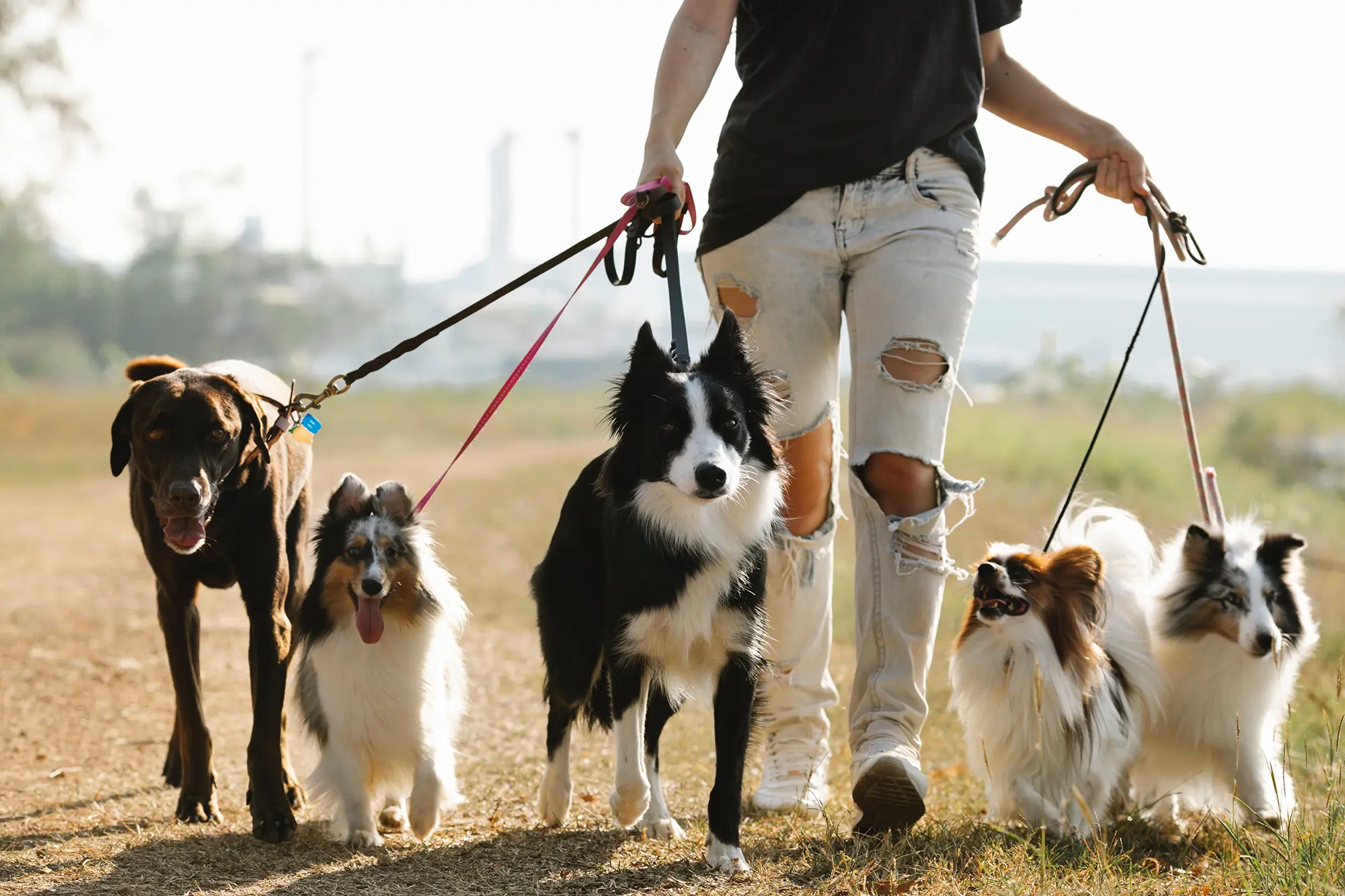keeping your pet safe in the event of an earthquake
Author: PawPots Team
 07 Feb 2023
07 Feb 2023
 5 min
5 min The powerful earthquake that hit Turkey and Syria on February 6, 2023, caused so much loss and heartache. Earthquakes are natural phenomena caused by the movement of tectonic plates in the Earth's crust. There is only so much we, as individuals, can do to prevent disasters. The best thing we can do is to be prepared.
When in a situation such as an earthquake, pets can panic, become agitated, and act frantically. And trying to keep the situation under control with frantic pets is challenging. Their survival instinct will kick in, much like ours, and they will act according to what they feel will save them.
We want to take a moment to share some measures to take to ensure your pet's safety.
Measures to Keep in Place Prior to Earthquakes
One always has to think of prevention as the number one rule in dealing with any natural disasters. We cannot prevent natural phenomena, of course, but we can put measures in place to help prevent further damage.
1. Create a "Safe Room"
Designate a safe space for your pets, such as a crate or a room with the least breakable objects, where they can retreat during the earthquake. Make sure the space keeps your pets away from any potential hazards, such as broken glass or fallen objects.
2. Ensure Their Identification
Make sure your pet has identification tags, such as a collar tag with your name and number on it. You can also consider investing in a Bluetooth collar. Microchipping your pet can also be a lifesaver. Microchips are one of the most dependable forms of identification, as they cannot be removed or damaged. Microchip registration is essential to ensure that veterinarians can receive the contact information they need to reunite you with your pet.
3. Keep a First Aid Kit
We hope to never find our pets hurt or injured. However, in emergencies, first aid kits are crucial. There are specific first aid kits made for pets, and you will find everything you need in them. Remember to always consult with a veterinarian before using first aid kits.
4. Locate the Nearest Pet Hospital
In a case of emergency and panic, the last thing we will do is think logically and efficiently through everything that needs to be done. Locating the nearest 24/7 pet hospital near you is one of the best things you can do prior to any emergency.
During a panic or emergency situation, we go into survival mode. We follow our instincts before we follow our logic. Placing these measures ahead of time ensures we are prepared and will not let us miss any crucial steps during a panic.
What to Do During an Earthquake
The first rule of keeping others safe during an emergency is to first check in with yourself. Once you ensure your safety, you can ensure others'. When it comes to pets, the calmer they are, the easier it is to keep them safe and get them to listen to you. Keep those five things in mind whenever you need your pet to stay calm.
1. Maintain Your Own Calm
Pets, like children, take cues from their guardian. They look to you to know how they should react in a situation. And if they sense you are frightened, they will panic. So the best way to keep them calm is to stay calm yourself. It's important to reassure them in a calm and soothing voice.
2. Comfort them
Pets will also look for safety and comfort in your arms. You can hold them if they wish to be held. You can also pet them and give them treats.
3. Secure them
If your pet is small, pick them up gently and hold them close. For larger pets, make sure they are secured in a safe area and stay near them for extra comfort.
4. Distract them
Sometimes, distraction is the best remedy for dealing with a frightening situation. If possible, you can distract your pets by performing tricks, offering treats, or playing with them.
5. Evacuate if necessary
If you need to evacuate, take your pets with you. You can ensure an easier, smoother, and quicker process by preparing their items in a location you can easily and safely access, such as the safe room.
Caring for Pets in the Aftermath of an Earthquake
All animals experience trauma, just like us. It is critical to keep an extra eye out for your pet in the days following an earthquake (or other natural occurrence).
1. Look for Injuries
After an earthquake, it is important to look for any signs of injury, such as cuts, bruises, or broken bones, and seek veterinary assistance if needed.
2. Provide Food and Water
Providing food and water can be calming to the pet, as food is a source of comfort.
3. Keep Them Safe
Keep in mind that aftershocks last a few days after an earthquake, and it is still important to keep your pets away from potentially dangerous locations in the house. Keep them away from damaged areas and weaker structures that might break or become damaged as the days pass.
4. Address any Behavioral Changes
Some pets may exhibit behavioral changes after an earthquake, such as increased anxiety or fear. It is important to get back to routine as soon as possible to provide the structure and familiarity they need. And don't be afraid to seek the help of a professional if needed.
5. Provide Comfort
Offer extra cuddles, treats, and soothing voices after an earthquake. Pets experience trauma as we do, and providing extra comfort is essential to their health and happiness following such frightening events.

Give Back The Love
Show your love to your pets with our high-quality, delicious and healthy meals! Show your love to your pets with our high-
quality, delicious and
healthy meals!




